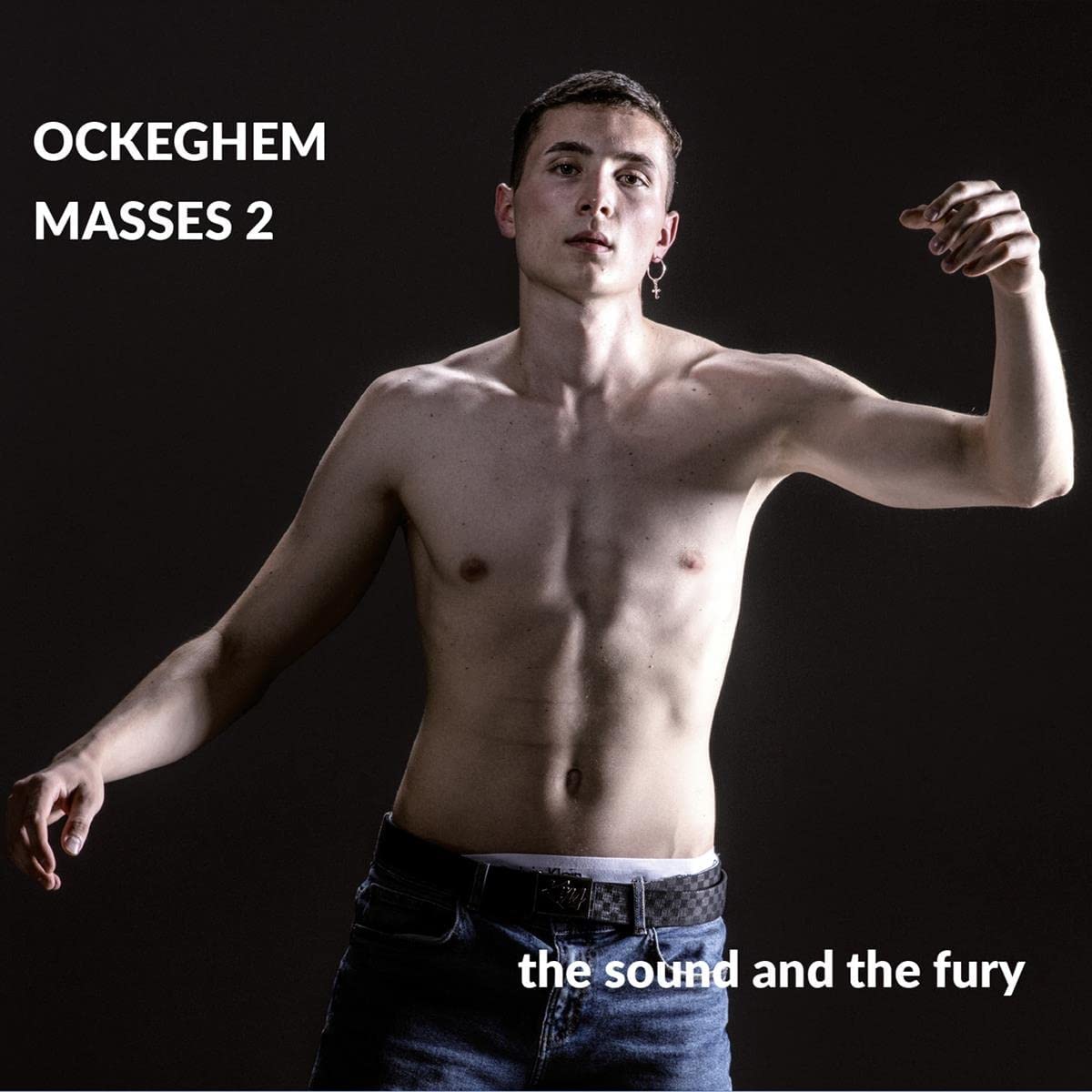the sound and the fury
53:19
fra bernardo fb2122007
Click HERE to buy this on amazon.co.uk
[Such sponsored links help keep this free-to-view website online!]
The label Fra Bernardo specializes in some wonderful vocal music from the Franco-Flemish school, sung by ensembles with self-consciously eccentric names, on discs that are encased in packaging usually fronted by illustrations of half-naked men and only slightly less naked women, in expressive (contrived, contorted, whimsical, postmodern, amusing, idiotic – according to taste) postures, ostensibly conducting music by the likes of Ockeghem and Gombert.
The Sound and the Fury (TSATF) are four fellows – David Erler, John Potter, Colin Mason and Richard Wistreich, respectively CT T B B – and this recording, released earlier this year, was made in 2010. Their previous recording of masses by Ockeghem was released in 2013. Strangely they are in competition with another of Fra Bernardo’s ensembles with a whacky moniker, Beauty Farm, who have recorded their own selection of Ockeghem’s masses over three discs, including the two under review here (Fra Bernardo FB1909373, surprisingly the only other currently listed version of the striking Missa Ecce ancilla Domini though a fine version two to a part by The Clerks’ Group on Proudsound PROU CD 133 has been deleted). Given the unarguably stratospheric quality of Ockeghem’s masses, the question of recommending the current disc comes down to the quality of the performance and of the recording. TSATF have a warmer vocal sound than Beauty Farm in their recordings of these two masses, less strident and more considered in their interpretations. The recording venue, Mauerbach Charterhouse Church, in Austria, has a noticeable but not distracting resonance, and TSATF adopt tempi that renders every note clearly audible. This pays off in, for instance, the Credo of Missa My my where the steady tempo is able comfortably to accommodate the syncopations that occur in the latter half of the movement, without any sense of haste and also without any detriment to the clarity of the notes.
The quality of the music in both masses is of the highest order, as one would expect of Ockeghem. Missa My my is based on Ockeghem’s own chanson Presque transi. This can be heard on Cut Circle’s double album of Ockeghem’s complete songs (Musique en Wallonie MEW1995) which I reviewed favourably for Early Music Review on 15 October 2020, referring to this song expressing “downright depression” – a compliment in the context! Missa Ecce ancilla Domini is based on a segment of the antiphon Missus est angelus Gabriel. Sung as well as this, these masses can of course be listened to as superior background music, but it is also most rewarding to engage closely with the music: it is not essential to have profound musicological or mathematical knowledge to appreciate that it has been created by a remarkable intelligence, an experience which is in itself rewarding, but by an intelligence that is capable of creating beauty as well as satisfying musical structures. The subtle change of harmonic gear in the Agnus of Missa My my from the final “peccata mundi” to “Dona nobis pacem” illustrates this beauty perfectly, while the striking phrase used to open the movements lacking an intonation illustrates both beauty and structural eloquence. There can of course be more than one ideal interpretation of music as fine as this. TSATF provides one such interpretation, a superb performance to complement superb music.
Richard Turbet
